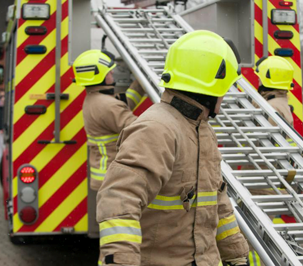The fire service will cost Brighton and Hove council tax payers £8.7 million for the coming financial year – or £97.43 on a band D council tax bill.
East Sussex Fire Authority is putting up the precept by £1.90 for a band D property from £95.53 – a rise of 1.99 per cent.
The precept on council tax bills across the whole fire authority area, including Brighton and Hove, will raise £28 million of the £40 million budget for the 2021-22 financial year.
The rest of the money comes mainly from government grants – and the fire authority is also setting aside a £6 million capital budget for “big ticket” items.
The capital budget includes £750,000 towards the modernisation of Preston Station fire station in the financial year from April.
The overall project is expected to cost £3 million and the fire authority’s budget papers said: “This station is the authority’s main asset in the city.
“We have determined that redevelopment of a modern, fit-for-purpose facility on the existing site is our preferred option.
“The project has yet to be signed off at RIBA (Royal Institute of British Architects) stage 2 and is now subject to further review to ensure the appliance bays are fit for purpose for the current fleet.
“As such the programme has not significantly progressed for almost a year and spending forecasts have therefore been pushed on by a year.
“The preferred option to maintain business as usual during project delivery is to take temporary off-site accommodation. The costs are included within the overall project cost.
“Our preferred option for the surplus space on site is for this to be redeveloped as part of the project and let on a commercial basis.
“This will require additional investment in the project and a proposal will be brought once we have more certainty on the deliverability within with current scheme budget.”
The fire authority said: “There is still significant uncertainty about funding for fire services after 2021-22.
“East Sussex Fire and Rescue Service is forecasting that it may still need to make considerable savings – of up to £2.5 million – over the coming years.”
The fire service said that it would explore “future efficiencies” in a number of areas including
• alternative ways of delivering community safety activities such as education, home safety initiatives and road safety projects
• sharing services such as estates, fleet and engineering with other public sector partners
• using IT to make processes more efficient
• reviewing administration and management structures
• reviewing planned investment in estates and fleet









